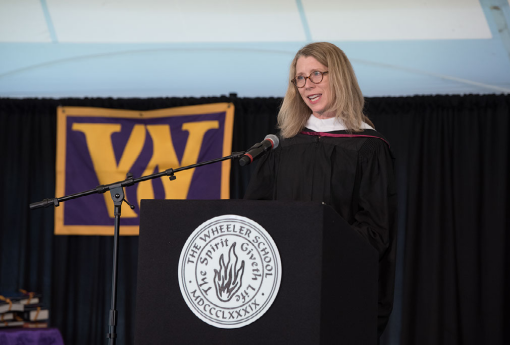
Hamilton Institute: Levers for Learning Success
March 7, 2021
How many of us these days turn to technology when we want to fix something or learn about a topic of interest to us? Obviously, the answer is many of us do this all the time.
At the Hamilton Institute at Wheeler, we want to provide resources to support all learners, but especially those with learning differences. As experts, we know that both the teacher-student dynamic as well as educational technology can give an assist to students with learning differences. We explain why below and offer these downloadable tip sheets to give you links to a number of these free, helpful resources.
Download Virtual Literacy Resources
Download Family Resources for Parents/Guardians
The Teacher-Student Dynamic Is A Social Process
Technology resources offer a variety of support to educators, but they do not replace the interactions that occur between teachers and students or students and students. For most people, one aspect of learning is that it is a social process according to Vygotsky (1978) and Bandura (1986). Students learn from teachers and from each other. However, technology can assist with access to resources in a variety of ways:
• Technology allows students access to content otherwise known as background knowledge which supports text comprehension. In the Fall 2019 edition of Perspectives, a publication of the International Dyslexia Association, Susan Neuman, Ph.D., NYU, writes, “…if we place knowledge on center stage, we now see knowledge as an alterable characteristic, one that needs to be developed and nurtured” (p. 13).
• We also know that in order to become a skillful reader, students need a robust vocabulary. Viewing sites that build background knowledge and vocabulary support reading development, but they do not take the place of direct and systematic instruction.
• Other websites can help students practice reading fluency at their “just right” reading level. These repeated readings lead to automaticity thus freeing up the mind to think about what one is reading.
What The Experts Say
Susan Neuman also writes about the “Five Research-Based Principles to Build Knowledge Networks.” Her 3rd principle is “The Use of Multiple Genres.” This means that we want our children to read books and articles on their appropriate lexical level. Sites such as NewsELA does exactly that. It provides robust contact at an appropriate level for each reader. Her 4th principle is “Distributed Review” which essentially means learning takes place over time. It is cumulative and uses multi-modalities.
Between direct instruction, guided practice, independent work, and access to technology we can achieve this goal.
By Jeanette Epstein, Director, The Hamilton Institute at Wheeler

